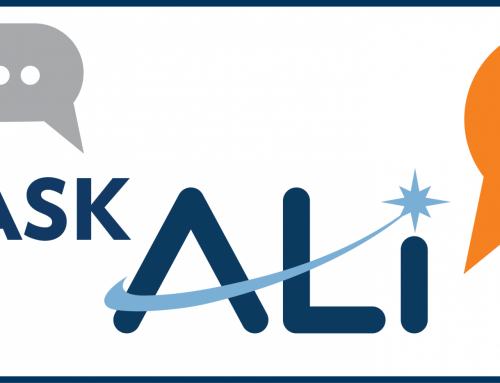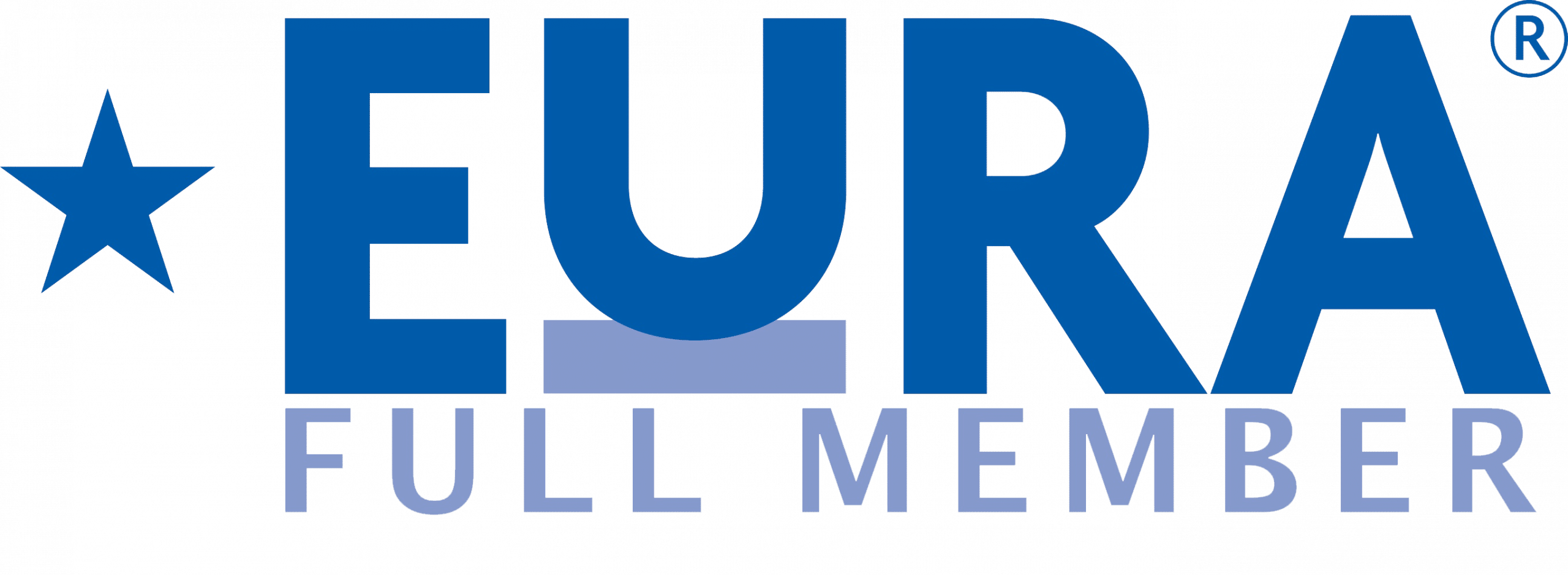
Managing the Experience through COVID-19
Home » Managing the Experience through COVID-19
Published on April 8, 2020
As governments, corporations and individuals try to make sense of this new world order, information is coming at us from all sides. Whether practicing social distancing and sanitary precautions in a workplace environment, working from home or quarantined by government or by choice, everyone is feeling the wrath of COVID-19. As with any national or international crisis, there is an underlying fear and anxiety that is understandable due to the unknown aspects of our foreseeable future; however, we all know and can take solace in the fact that “this too shall pass.”
How Do I Keep Moving Forward?
The key to any action taken during this time is to first consider the safety of employees, the duty of care that the organization has and the speed of action between decision and execution. In all cases, companies should consider a “next best option” so that no time is wasted in acting decisively. With the health and safety of employees and families as the top priority, this is the time to cut through bureaucracy and red tape and execute quickly to ensure the best experience for your talent.
With the ever-changing immigration regulations (lockdown, quarantine, etc.) and limited resources (airlines, temporary accommodations, transport, etc.), speed and decisiveness are mission-critical in handling the emotions of impacted employees, and at times, helping them make rational decisions in their best interest, making judgement calls and if a situation changes, being nimble and fast to change directions and plans when necessary.
Two questions come to mind when considering our current reality: “How can I protect my people?” and “How do we move forward from here?” In this Advisor, Altair Global aims to provide guidance and reassurance to all mobility professionals around key areas of concern and future planning strategies to help organizations weather this storm and come back strong.
How Can I Protect My People?
In the current environment, fear of the unknown is one of the main stressors for all employees. Being in the middle of a move or considering a move can significantly add to the anxiety of an employee and can most definitely affect the decision-making process. Companies who value their talent need to protect and encourage employees with clear communication and realistic expectations along with the extension of value-added benefits and extra care around mental and physical well-being during this time. Below are some considerations to help ease the apprehension of employees while also providing companies the best chance of maintaining a successful relocation or assignment.
Communicating the New Reality
To say this is a unique time is an understatement. The COVID-19 crisis is affecting almost every facet of our existence. In some areas, companies and employees have flexed to adopt work from home arrangements and more virtual meetings; however, when dealing with a global pandemic of this nature, there are some things that are out of the control of even the most prepared organization. Setting proper expectations for the new normal is key to keeping employees engaged during a difficult time. Below are two major areas that will most likely be of concern and need to be worked through with each individual employee based on their current situation.

Real Estate Delays
It is important to note relocating sellers and buyers are still considered “priority” in today’s market despite present challenges. From the lens of a real estate agent, relocating sellers and buyers are not just out to “test the market” ‒ they are ready to sell and/or purchase. We are seeing a flurry of rescheduling and necessary delays in some areas; yet, real estate activity is continuing through virtual means. Interest rates continue to entice many buyers. To the extent practical, most companies are moving forward under a business as usual model; however, there may be delays in scheduling appraisals, brokerage interviews and inspections. Altair Global continues to process contracts of sale and take possession of vacant properties (licensees not under a shelter-in-place order should still be able to post signs, transfer utilities and place lockboxes on vacant homes). Offers received will be negotiated and every attempt will be made to work with real estate partners to bring sales and purchases to fruition.
 Household Goods Shipments
Household Goods Shipments
Across the globe, governments are responding to the COVID 19 crisis by restricting movements across and within their borders to only allow essential business to be conducted. In many cases, transportation and logistics are deemed to be essential business and are allowed to be continued under these restrictions; however, it is advisable not to ship household goods unless the shippers are also allowed to travel.
This has caused, and will continue to cause, various delays in the shipment of household goods. In addition, household goods services will be disrupted within the U.S. based on the severity of local COVID-19 cases. For example, New York City is currently under lockdown from all household goods deliveries due to the high number of local COVID-19 cases. We expect this trend to continue in the short term.
Offering Value-added Benefits
Trying to ensure that mobility objectives are maintained while employees are in the midst of a crisis of this magnitude takes creativity and compassion. Each individual handles stress in a different way and has needs that are unique. Companies should investigate all options available to them at this time in order to best serve their employees and to ensure a duty-of-care approach across the board. Managing an employee’s experience during difficult times can be critical to underscoring company culture. We have listed the most critical benefit programs for consideration during a time of crisis:
 Employee/International Employee Assistance Programs (EAP/IEAP)
Employee/International Employee Assistance Programs (EAP/IEAP)
EAPs/IEAPs are a critical tool during situations such as the COVID-19 pandemic. Intended to improve employee productivity, help enhance morale and overall health, reduce stress and increase employee retention; EAPs and IEAPs serve to accomplish the same goals. The differences between the components of an EAP and an IEAP are few; however, the impact of the different components of an IEAP is immeasurable. Both programs address challenges that employees face, including marital and family conflicts, personal and emotional problems, substance abuse and work-related stress.
An IEAP takes these issues to an even higher level, focusing on how they might differently affect an employee and family relocating to a foreign location. Additionally, IEAPs address challenges experienced through culture shock and cross-cultural transition, isolation and loneliness, and issues with the family’s adaptability to the foreign location. When researching potential providers for IEAP programs, it is important that the providers meet certain criteria. First, the provider must have multilingual counselors to support the needs of a diverse workforce. Counselors must be available 24/7 in order to provide support between the vast time zones of foreign locations. Second, the counselors must understand the cultural norms in the host locations and the impact that these norms will have on the employee and family. And third, the provider must have knowledge of the cultural differences in the ways psychological issues are addressed in the host location. This may include psychiatric diagnosis, methods of treatment and the availability and quality of community resources.
 Medical and Emergency Assistance Programs
Medical and Emergency Assistance Programs
One of the most unsettling situations an expatriate can experience is to face a medical emergency and have nowhere to turn for support and assistance in the foreign location. In locations where civil unrest is prominent, the risks of placing employees onsite without any type of evacuation or disaster plan are numerous. These are situations easily addressed through the adoption of an Emergency Assistance Program. An Emergency Assistance Program can offer a plethora of benefits to a global workforce, including:
- Assessments of medical facilities and emergency response capabilities in the foreign location
- Financial support in the event of a medical emergency
- Referrals to local doctors and clinics
- 24-hour phone support for medical questions and issues
- Emergency evacuations and disaster planning
As with IEAPs, the same criteria should be considered when searching for an EAP supplier. Additionally, it is important to review the organization’s worldwide physician network, as well as the screening criteria the organization uses to determine whether to add a physician to their network. It is always beneficial to examine the background and biographical information provided for physicians in the organization’s network. Finally, it is important to ensure that the vendor selected has the financial and network resources available to coordinate and implement a disaster and/or evacuation plan that will support the number of employees on assignment in the host location.
 Good and Services (G&S) Allowance
Good and Services (G&S) Allowance
The current COVID-19 situation is unprecedented and as such, may require unprecedented approaches. For companies who regularly review and update G&S indexes to ensure G&S differentials are maintained appropriately, this may be a time to leave G&S differentials untouched so as not to add more disruption and change to international employees’ lives. We continue to see shortages of basic necessities and household staples globally. Employees may not be able to shop in the same local stores or take advantage of the same amenities. Expatriates may need to revert to shopping patterns seen at the beginning of their assignments, i.e., shopping at more expensive expatriate outlets and stores. Now is not the time to remove any cost of living-related benefits or allowances.
 Vehicle Allowance
Vehicle Allowance
In this time of uncertainty, international employees in more populous locations may be hesitant to utilize public transportation due to health and safety concerns. For these employees, a company may want to consider an interim transportation allowance, to allow these employees better access to private transportation options.
 Housing Benefits
Housing Benefits
To reduce the risk of contracting the virus, employees likely will want to ensure their personal environments are as clean and healthy as possible. This may be a time to explore options around providing air purifiers or other related household items to employees. These seemingly minor steps can go a long way to ensuring employees feel protected and supported by their organization.
 Non-monetary Benefits
Non-monetary Benefits
One significant risk during these types of situations involve employees, especially those who are assigned outside of their home country and possibly in remote locations, turning to social crutches including alcohol, drugs, etc. Companies need to be thoughtful regarding the benefits and assistance provided for these employees. For example, if the employee is provided with lump sum payments, bonuses or allowances, there is no way to ensure that the employee is not using these funds toward the social crutches previously identified. It may make more sense to provide the employee with non-monetary benefits to help alleviate these stresses. These benefits may require a greater level of support from the home office/headquarters location and more technology options, allowing the employee to remain connected to friends and family.
 Home Leave Benefits
Home Leave Benefits
If your organization has a home leave policy that places restrictions on the timing of home leave trips, this is a time to relax those restrictions. Employee requests to take advantage of home leave travel should be considered, if at all possible, based on global travel restrictions and guidelines.
Where Do We Go From Here?
Impact of The CARES Act
One area of concern and question is around the recently passed CARES Act and the much-anticipated Recovery Rebates for Individuals. The rebate is a direct payment intended to assist families during this public health crisis. The rebate received will not have to be paid back should eligibility change with the 2020 tax return filing and is structured as a tax credit automatically advanced to eligible households.
So, how do relocation benefits paid to employees potentially impact eligibility for this credit? Payments are being advanced based on adjusted gross income (AGI) and family status for the 2019 return federal tax return period. Where a 2019 return has not yet been filed, the 2018 AGI will be referenced. Employees who received relocation benefits within the applicable return period will have an overall higher AGI due to the taxability of their benefits and associated gross up, which is likely to reduce or eliminate the advance credit altogether.
When communicating with employees on this topic, it’s important to emphasize the current payout is an advance of the credit available for the 2020 tax return period. They may still be eligible for the benefit when filing their 2020 return as long as their 2020 AGI is within the eligible income range.
Altair recommends preparing for and anticipating complications that may cause your employees to lose eligibility for the tax credit due to the relocation process, such as:
- Employees who would have been eligible for the advance credit, if not for their 2019/2018 relocation benefits, find themselves over the threshold in 2020 and unable to reclaim the tax credit when filing in 2020.
- Employees who were single when filing their 2019/2018 and would have been eligible for the credit, if not for their relocation benefits during that period, get married in 2020 and their now joint income pushes them out of the eligibility threshold.
- Employees with a filing status that changed after receiving their advance credit, such as the birth of another child, which would increase their credit by $500, but are unable to recover during the 2020 tax filing season because their relocation benefits in 2020 pushed them over the income threshold.
These are just a few examples of scenarios Altair anticipates will occur over the next year. Understanding our clients do not want their employees to miss out on this important program, we have worked with a trusted tax partner to offer an evaluation of income tax filings to identify any loss and a method to allow for recovery through the relocation process. In addition, Altair has established a separate set of COVID-19 specific account codes to track exceptional benefits provided during this crisis. For U.S.-touching expenses, Altair has been advised by our tax consultant that pursuant to IRC Section 139 (Disaster Relief Payments), as long as any mobility expenses being incurred were caused by COVID-19, (i.e., bringing employees home early from their assignments or extra/extended temporarily living expenses, etc.) and the company has made reimbursement either directly to or on behalf of the employee, then the expenses can be treated as nontaxable. Altair does suggest our clients contact their tax provider for confirmation.
Summary
We don’t know when the current crisis will begin to subside, and until then, we must be prepared for anything. Above all, consistent communication with your organization’s employees is critical. For many organizations, COVID-19 highlighted a distinct need for a business traveler tracking solution that provides a clear picture of the location of each employee and allows for robust reporting in emergencies, such as the current health pandemic. As in any situation, hindsight is 20/20; however, when a steady state is achieved, all organizations will have the ability to examine areas of improvement in their business continuity planning and put solutions in place to better prepare their mobility program for the future.
Additionally, for employees who are living away from their home base, this type of oversight and communication is even more paramount. Companies should be exploring all avenues to ensure employees are receiving support and guidance in a multi-modal environment so that each person’s individual needs are met. Employees should have access to a helpline or other resources 24/7.
Setting and resetting expectations on a regular basis is also key. We are likely to continue to see a shortage of services, suppliers and assistance we’ve come to take for granted. In some of the key areas that we’ve highlighted such as real estate and household goods, there will undoubtedly be a backlog of activity that will have to be mitigated before more current activity can proceed. Additionally, as unfortunate as it is, there will likely be less bandwidth within certain industries due to those companies who are not able to withstand the economic slowdown. Patience and persistence will be necessary for anyone trying to navigate these services once the COVID-19 standstill has passed.
As is evident, the world as we know it is changing. Now is not a time to sit still, but to proactively embrace the new opportunities for creativity and ingenuity that this crisis is creating. As organizations do their best to predict and plan, the thing to keep top of mind is that mobility is, and always will be, a business of people and people have an amazing way of rising to the occasion.
If you have questions regarding this Altair Global Advisor, please contact your Client Services representative.
Altair Global (‘Altair’) has provided this information as a service and convenience for your information only. It is not intended to replace your own legal or financial guidance and/or assistance and you are encouraged to seek the advice of your own tax and legal advisor. Further, the information contained herein is to our knowledge accurate to the extent of the data available to Altair as of the date identified. Altair does not assume responsibility for the accuracy of the contents hereof and is under no obligation to update the material contained herein.






